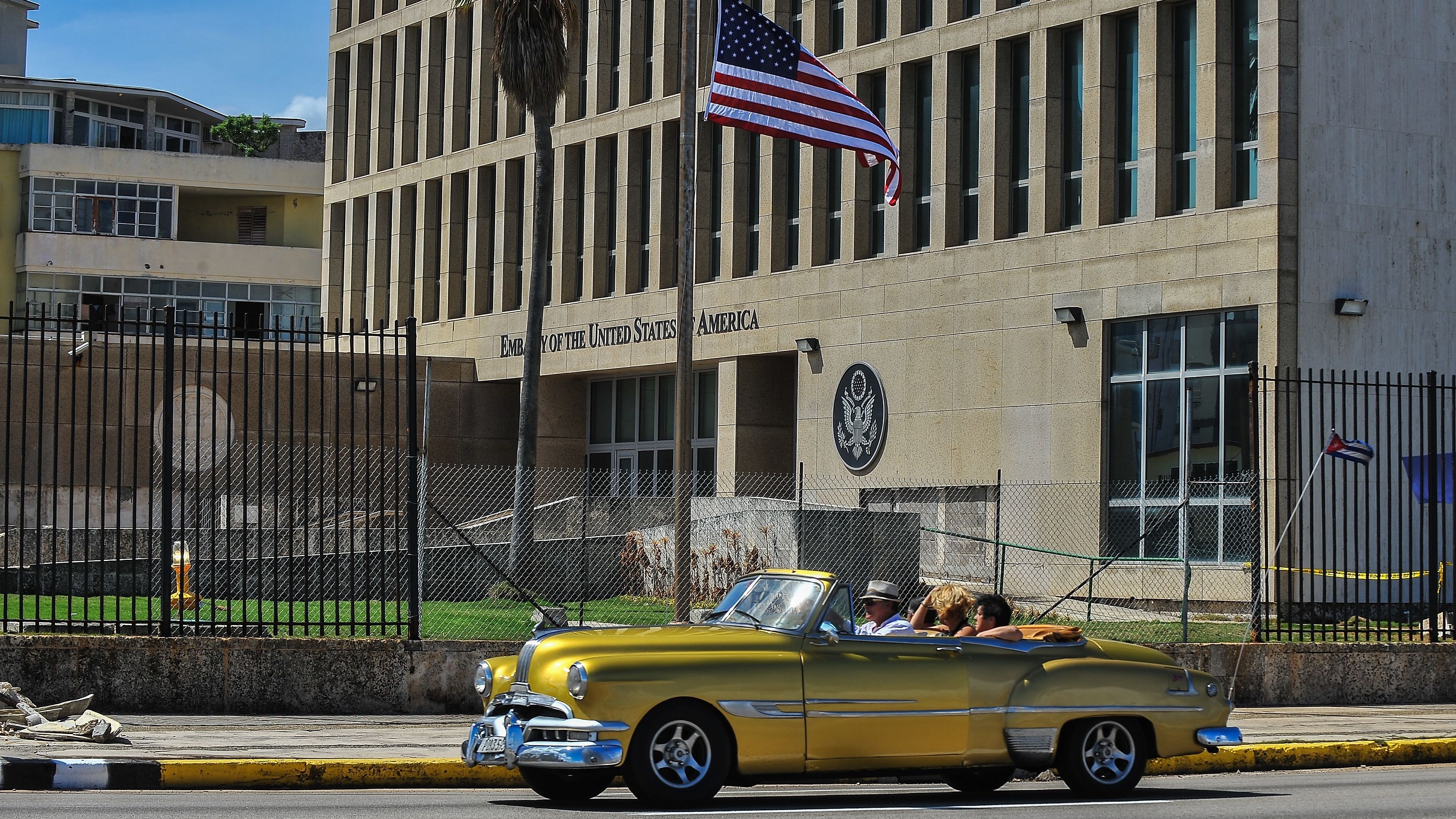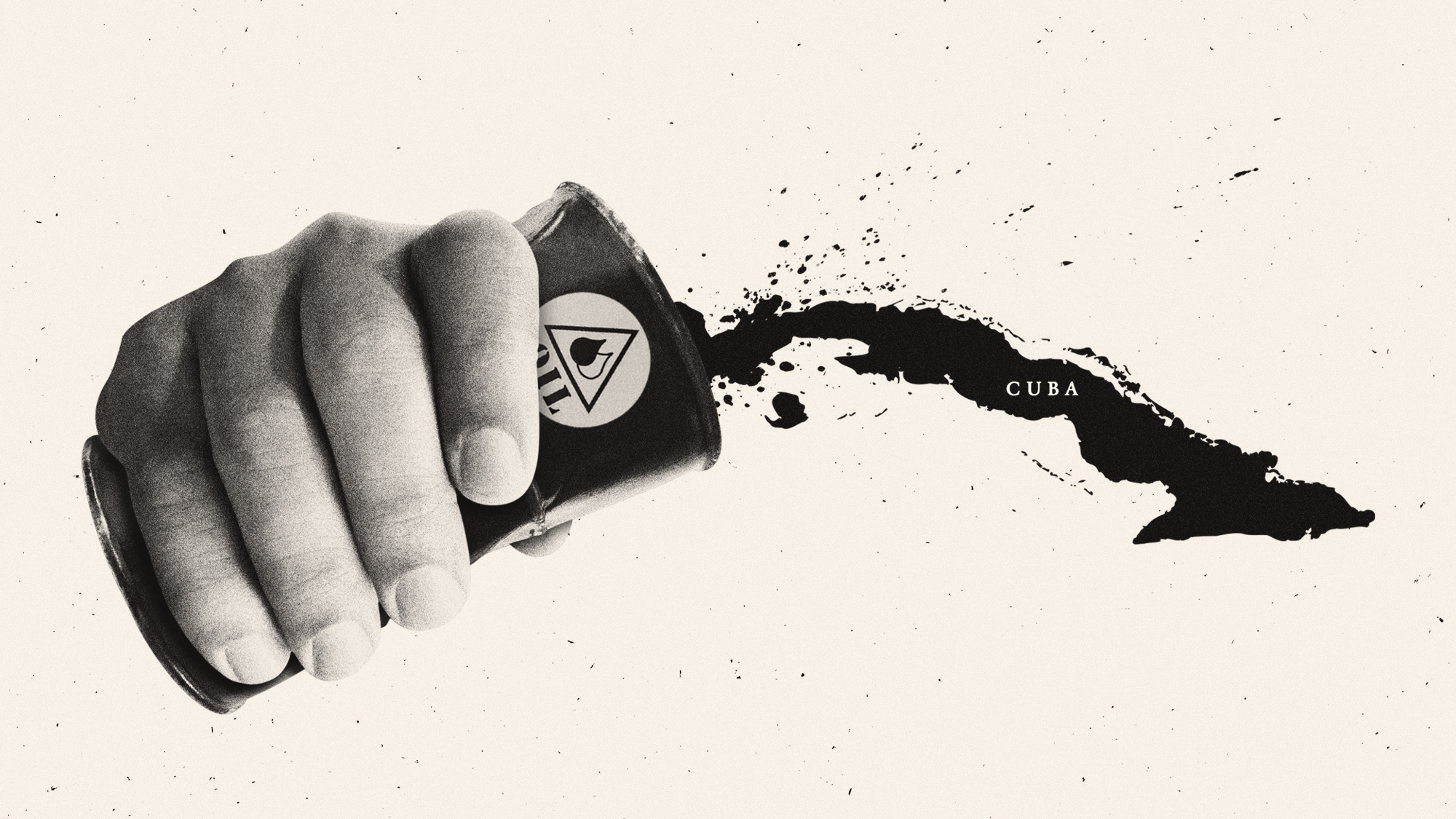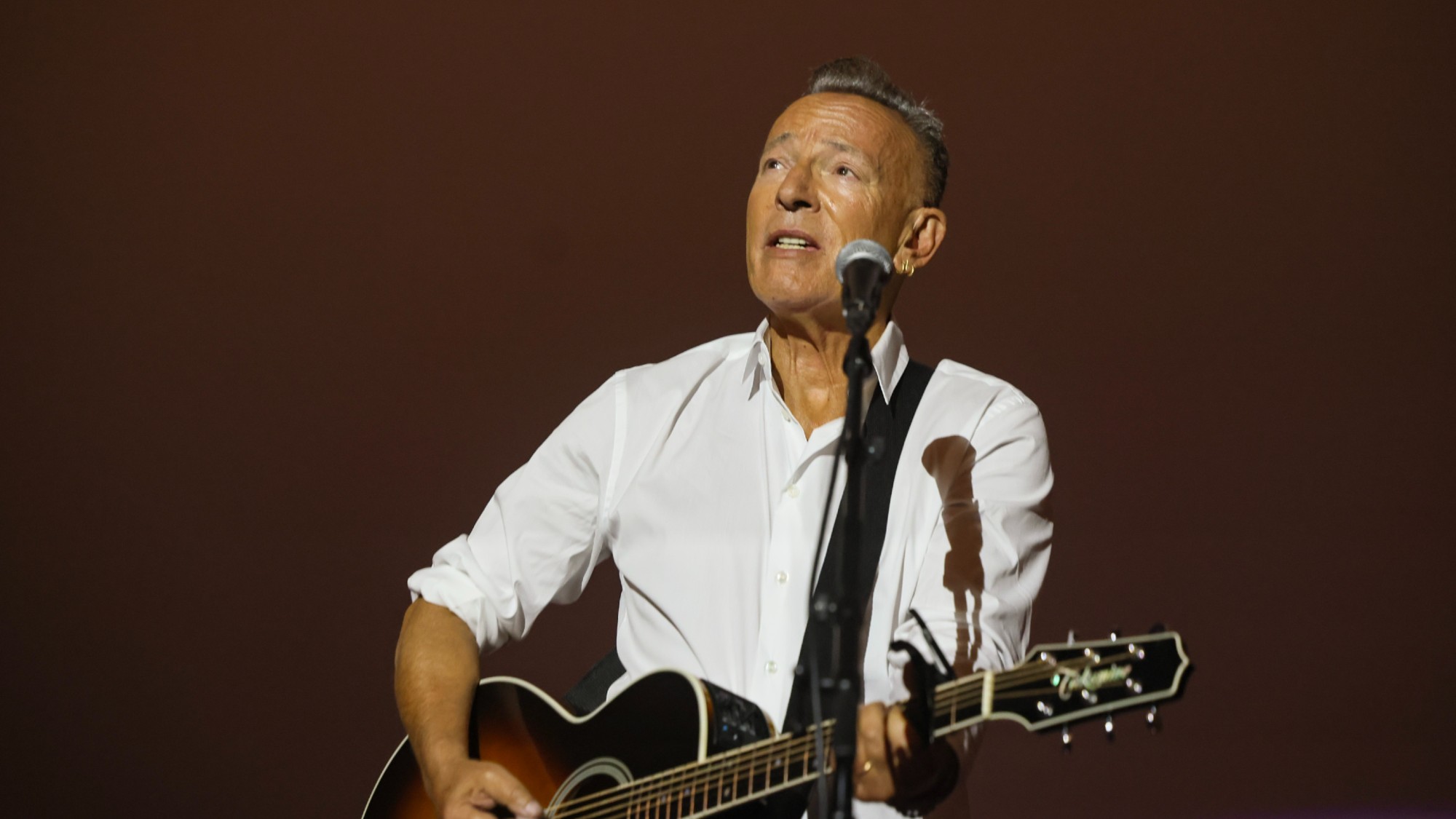US diplomats in Cuba not victims of sonic attack
New study rubbishes ‘exotic explanations’ for Havana Syndrome

A free daily email with the biggest news stories of the day – and the best features from TheWeek.com
You are now subscribed
Your newsletter sign-up was successful
The mysterious illness that spread among US embassy staff in Cuba was not down to a “sonic attack”, but emotional trauma and fear, says a new report.
At least 22 diplomats were reported to have suffered brain abnormalities, hearing loss, headaches, nausea and fatigue during the autumn of 2016, prompting the US to accuse Cuba of sonic attacks.
The accusations caused a diplomatic row, with the US sending many of its staff stationed in Havana home, despite Cuba’s dismissal of the claims, says Sky News.
The Week
Escape your echo chamber. Get the facts behind the news, plus analysis from multiple perspectives.

Sign up for The Week's Free Newsletters
From our morning news briefing to a weekly Good News Newsletter, get the best of The Week delivered directly to your inbox.
From our morning news briefing to a weekly Good News Newsletter, get the best of The Week delivered directly to your inbox.
Now a leading sociologist and an expert in neurodegenerative diseases have said it was more likely to have been emotional trauma and fear that caused the symptoms.
Dr Robert Bartholomew and Dr Robert W Baloh said that the concussion-like ailments of “Havana Syndrome” are down to something akin to shell-shock, caused by the stress and uncertainty of living in a hostile foreign country where diplomats are under constant surveillance.
The study, published in the Journal of the Royal Society of Medicine, said: “A characteristic feature of combat syndromes over the past century is the appearance of an array of neurological complaints from an overstimulated nervous system that are commonly misdiagnosed as concussions and brain damage.”
Diplomatic staff complained of health problems after hearing strange grating or vibrating sounds at home or in hotel rooms, which they said were coming from a specific direction. Other people nearby reported that they could not hear the sounds.
A free daily email with the biggest news stories of the day – and the best features from TheWeek.com
Professors at the University of Pennsylvania published a study earlier this year in the Journal of the American Medical Association showing “something happened” to the brains of diplomats and the symptoms were “not imagined”.
They looked at the brains of 44 US diplomats and family members who had been stationed in Cuba and found they had less white matter, which could affect the brain’s ability to send messages and impact auditory and spatial functions, says the BBC.
But the new study from Bartholomew and Baloh suggests that previous studies on Havana Syndrome had “critical design flaws”.
“There is no need to resort to exotic explanations. Claims that the patients were suffering from brain and auditory damage are not borne out by the data.
“The political and scientific evidence for the perpetration of an attack on US embassy staff in Cuba is inconclusive,” the study says.
-
 The Gallivant: style and charm steps from Camber Sands
The Gallivant: style and charm steps from Camber SandsThe Week Recommends Nestled behind the dunes, this luxury hotel is a great place to hunker down and get cosy
-
 The President’s Cake: ‘sweet tragedy’ about a little girl on a baking mission in Iraq
The President’s Cake: ‘sweet tragedy’ about a little girl on a baking mission in IraqThe Week Recommends Charming debut from Hasan Hadi is filled with ‘vivid characters’
-
 Kia EV4: a ‘terrifically comfy’ electric car
Kia EV4: a ‘terrifically comfy’ electric carThe Week Recommends The family-friendly vehicle has ‘plush seats’ and generous space
-
 Local elections 2026: where are they and who is expected to win?
Local elections 2026: where are they and who is expected to win?The Explainer Labour is braced for heavy losses and U-turn on postponing some council elections hasn’t helped the party’s prospects
-
 ‘This is something that happens all too often’
‘This is something that happens all too often’Instant Opinion Opinion, comment and editorials of the day
-
 How corrupt is the UK?
How corrupt is the UK?The Explainer Decline in standards ‘risks becoming a defining feature of our political culture’ as Britain falls to lowest ever score on global index
-
 ‘The mark’s significance is psychological, if that’
‘The mark’s significance is psychological, if that’Instant Opinion Opinion, comment and editorials of the day
-
 Will Trump’s oil push end Cuba’s Communist regime?
Will Trump’s oil push end Cuba’s Communist regime?Today’s Big Question Havana’s economy is teetering
-
 ‘Something close to a universal rallying cry’
‘Something close to a universal rallying cry’Instant Opinion Opinion, comment and editorials of the day
-
 The high street: Britain’s next political battleground?
The high street: Britain’s next political battleground?In the Spotlight Mass closure of shops and influx of organised crime are fuelling voter anger, and offer an opening for Reform UK
-
 A running list of the international figures Donald Trump has pardoned
A running list of the international figures Donald Trump has pardonedin depth The president has grown bolder in flexing executive clemency powers beyond national borders